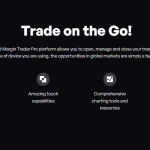
Today, it’s vital for companies to not just keep up but to lead in innovation. BestBookDirect.com has shown this by growing their bookings for Warner Hotels by 200% each year. This success shows how important it is for companies to transform and innovate. At the center of these achievements is a strong culture that values innovation. Scott Dylan, of Inc & Co, knows this well. He has led various companies to adapt and succeed in changing markets.
Scott Dylan believes in the power of partnerships to boost innovation. For instance, the team-up between Wrexham County Borough Council and Costelloes EV Group is a prime example. By combining their knowledge, they’ve achieved technological progress and better customer service. These efforts help not just the organisations but also the local economy.
Scott Dylan pushes for innovation at all levels of a company. His advice shows how strategic planning and working with others can hugely improve innovation. His wisdom is priceless for any business looking to excel in today’s challenging market.
Understanding the Innovation Imperative
In today’s fast-changing markets, the need for innovation is clear. It guides companies to grow and stay strong. Innovation is not just about adjusting. It’s a major force that puts companies ahead in being competitive and efficient.
When firms integrate innovation strategies, like adopting new technologies or forming strategic partnerships, they set themselves up for success. These actions help them navigate and thrive in today’s uncertain economic climates.
The partnership between Wrexham County Borough Council and Costelloes EV Group shows a forward-thinking approach. They focus on eco-friendly development by boosting electric vehicle facilities. This move is a step towards cutting carbon emissions and shows how innovation is key to making a real environmental difference.
Companies that innovate reshape their operations for the better. This enhances their overall growth. But, fitting in new strategies smoothly requires understanding the culture within the company. Research by Harvard Business Review shows it’s crucial to ensure innovation fits well with daily activities. This prevents any culture clashes that might slow progress.
Continuous innovation means always looking for ways to improve. This could mean new products or refreshing how things are done. Positioning innovation at the heart of a business helps with moving towards eco-friendliness. This meets market needs and helps society and the environment.
Adopting a digital and environmental focus is key, as per the idea of twin transitions. Companies need to view technology and sustainability as equally important. This balance is essential for lasting success.
So, innovation is more than new gadgets or methods. It’s about creating a space where companies can grow sustainably and thoroughly. This aims for a future where business plans and innovation are tightly linked, ensuring competitiveness in the global market for a long time.
Analysing Current Organisational Culture
The importance of organisational culture in driving innovation and sustainable growth is huge. Wrexham County Borough Council exemplifies this well. It has shaped a culture that values partnerships and government funds for progress. This approach has led to significant eco-friendly changes, including the setup of over 45 Electric Vehicle Charging Points (EVCP).
This culture is key to making innovative ideas real, boosting the community’s quality of life. It doesn’t just support existing green practices. It also lays the groundwork for ongoing enhancements and new ideas. Entities like Wrexham County Borough Council show how to lead in sustainability and innovation.
To understand how to achieve similar success, it’s vital to study these cultural foundations. Embedding innovation and sustainability in an organisation’s culture brings wide benefits. It helps both the environment and the economy. This shows how closely linked organisational culture, innovation, and sustainability are in making a real difference.
Leadership’s Role in Driving Innovation
Leadership is crucial in sparking innovation, especially with electric vehicle infrastructure. Leaders like Cllr David A. Bithell and David Costelloe show how vital they are. Their work with the EVCP project proves leadership’s key role in blending technology with environmental care.
Such leaders don’t just come up with ideas for electric vehicle setups. They also use diverse teams’ skills to make these ideas work. Their strategy shows how important it is to focus on sustainability and use smart partnerships to push technology forward. This approach helps tackle global issues like cutting carbon emissions.
But leading innovative partnerships doesn’t stop after starting a project. It includes constantly staying involved and adapting to new tech and market changes. This ensures projects like electric vehicle infrastructure grow well and last long. Leaders set visions that make organisations value innovation and eco-friendliness together, leading to progress that helps everyone.
The blend of leadership, partnership, and focus on key areas like electric vehicles is critical. It not only pushes technology forward but also helps society become more eco-friendly. Successful leaders show how combining visionary leadership with smart collaboration unlocks innovation’s full potential in any area.
Strategies for Sustaining Innovation
In business, keeping innovation alive requires a well-thought-out strategy. The Wrexham County Borough Council shows how using innovative strategies like strategic partnerships can greatly improve how they operate and deliver services. They add new technology such as solar energy and EV charging, with a strong focus on sustainability. This shows a complete way to keep innovating by advancing their infrastructure widely.
Strategic partnerships are key in nurturing and keeping innovation alive. They bring together different areas of expertise for better solutions to tough issues. For example, collaborations between public bodies and private firms speed up the use of new technologies. These technologies can change communities and economies. It’s a move where both sustainability and innovation are essential for making strategic choices, influencing how organisations grow in a fast-paced global scene.
To ensure innovation is sustainable, there must be planning for the long-term impacts, not just short-term wins. Organizations should set up systems for continuous innovation, considering environmental care and social duty. This appeals to consumers who prefer ethical brands. It also aligns an organisation’s operations with wider sustainable goals, leading to a strong business form.
When organizations focus on making sustainability a part of their main operational and strategic plans, innovation becomes vital. This approach equips organizations to face the future strongly and flexibly. To sum up, keeping innovation going through strategic partnerships and making sustainability a core part of operations shapes organisations ready for future challenges with energy and clarity.
The Significance of Collaboration and Diversity
In today’s fast-moving world, teamwork and different ideas are key for coming up with new things. Look at how councils work with unique service providers in the UK, like the tie-up between Wrexham County Borough Council and an electric vehicle company. This shows how mixing different kinds of know-how can really push us forward, making our economy strong and ready for the future.
It’s clear from industry data: businesses focusing on a varied workforce see a 19% bump in money made from new ideas. This means having a mix of people isn’t just nice; it boosts business big time. Also, when firms combine different skills, they adapt faster, making new deals in just a few months after they start talking.
Also, look at how Research Solutions works with Jisc, using Scite’s AI to make cutting-edge tools cheaper and easier to get for UK schools. This shows how working together can make important information and tech available to everyone. It’s about sharing and growing knowledge and new ideas across the board.
This mix of bringing different people together and working as a team does more than just spark new ideas. It keeps businesses competitive on the world stage. With 71% of UK manufacturers saying new ideas are key to their work, it’s clear. By weaving diversity and cooperation into their plans, they’re building a path to a more sharing, insightful future.
Techniques to Ignite Creative Thinking
For any organisation eager to innovate, mastering creative thinking techniques is key. Wrexham County Borough Council shows this well. They teamed up with experts in electric vehicle support to find new ways for sustainable community growth. This shows how using outside knowledge can spark creative ideas for the benefit of many.
When organisations collaborate, they share more than just resources. They blend different skills to tackle tough challenges with novel solutions. This mix of knowledge can lead to breakthrough ideas. Also, working with experts from various fields helps hatch fresh, unconventional ideas.
Engaging with outsiders helps organisations break free from old ways of thinking. This is crucial for innovation. It opens up new viewpoints and invites innovative thoughts. Thus, drawing on a wide range of industries’ expertise can make a huge difference, offering unique solutions and a competitive advantage.
Innovation Tools and How They Propel Organisations Forward
In the fast move toward being sustainable, innovation tools are key in changing how businesses work. One example is seen in the electric car market. Here, companies such as Costelloes EV Group are making big steps with electric vehicle charging setups. This move not only improves what an organisation can do but also fits well with worldwide sustainable solutions. It shows a bold step into the future.
Using these innovation tools is vital for reaching sustainable development goals. By bringing in new digital technologies, businesses boost how well they operate. They also lead the way in using green resources. Adding electric vehicle charging stations follows the European Commission’s support for digital and green change.
Besides, adopting innovative tools leads to using resources better and cutting waste. For companies, this isn’t just good for the planet. It also helps them stand out, do better, and have a good name. Studies have shown how going green can make businesses more inventive.
In these times of quick tech and environmental changes, companies using these tools set a great example. They work on the electric vehicle charging network and show strong support for a sustainable future. They tackle today’s eco issues and help build cities and communities that are smarter and last longer.
Case Studies: Successful Innovation Initiatives
Talking about successful innovation often involves looking at how new ideas work well in businesses. We learn a lot from real-world case studies. For instance, the team-up between Wrexham County Borough Council and Costelloes EV Group is notable. They’ve worked hard on electric vehicle infrastructure. Their work shows how good teamwork can solve big problems, clearly making dreams a reality.
Studies from Forrester and Gartner highlight an important point. They show that matching what a brand stands for with what customers experience is key. It keeps customers coming back and drives new inventions. Wrexham and Costelloes expanded their electric vehicle charging spots. They improved their services. This move not only met the immediate needs of drivers but also set a high standard for eco-friendly business ideas.
Success in developing electric vehicle infrastructure points to a bigger picture about being more sustainable. Scholars think companies need to follow more eco-friendly and inclusive methods. The partnership between Wrexham Council and Costelloes is a great example. It shows the value of working with the community and creating together for a greener and more inclusive future. Their approach gives a blueprint for other organisations wanting to innovate in a way that’s both effective and good for the planet.












